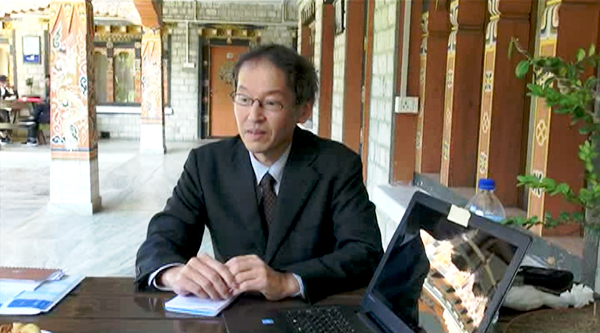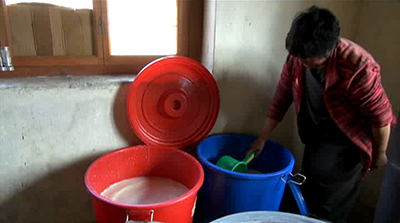
A Japanese professor has initiated a project to ensure continued sustainable livelihood and curb the issue of rural-urban migration in Shingkhar village of Ura Gewog in Bumthang.
K Masaki is a professor with Konan University in Japan. He intends to share the outcomes of the project with the policy makers in the country to stimulate discussion on how best to promote sustainable rural livelihoods in Bhutan.
This is also the first ever JICA assisted project in Bhutan focused on only one village.
Professor K Masaki has been visiting Bhutan since 2004 and worked with the JICA office in Bhutan. During his stay in Bhutan, he worked closely with the people of Shingkhar in Bumthang.
This time, he is accompanied by three of his students, who were chosen through a selection interview to visit Bhutan. The students spent a week at Shingkhar experiencing nature and life of rural Bhutan.
“People in Shingkhar were very kind to us. They were so cooperative and kind enough to let us bathe in their homes and provide us food,” Hinata Sogabe, one of the students, said.
“They were always kind to me and showed me many beautiful temples and mountains. I had a very happy experience at Shingkhar and I want to come back,” Satono Sugiyama, another student, said.
“I had a very good experience in Shingkhar. For example, I made cheese at the Milk Processing Unit in Shingkhar. In Japan, there are a lot of machines, so we don’t make cheese manually,” Yuka Miura said.
As a part of the project, K Masaki also has plans to take the people of Shingkhar for study tours in Japan.
After having close association with the people of Shingkhar, Masaki really wanted to do something for them. He then sought JICA’s financial support and the Konan University also rendered help.
“We are using the type of JICA fund called Partnership Program, which is aimed at strengthening ties among ordinary citizens at the grassroots level. So, hopefully, through this project, ordinary citizens from Japan and particularly those associated with my university and of course the people of Shingkhar can become friends with each other. That’s what I hope the project to achieve,”Professor K Masaki said.
Through the project, the Milk Processing Unit in Shingkhar, which remained non-operational on several occasions due to defunct machines and bad condition of the structure, has been restored.
New milk processing machines were also provided besides renovating the structure.
“The purpose of the project is to assist Shingkharaps in improving their livelihoods through the establishment of the MPU and also improvement of the waterway,” he added.
The Tshogpa of Shingkhar, Sangay Bidha, said the project has benefited them a lot.
 “Villagers here who have fewer milking cows don’t have to go to other places looking for cheese and butter. Likewise, people who have lots of milking cows don’t have to look for a place to sell their milk. They can sell it at the MPU,” Sangay Bidha said.
“Villagers here who have fewer milking cows don’t have to go to other places looking for cheese and butter. Likewise, people who have lots of milking cows don’t have to look for a place to sell their milk. They can sell it at the MPU,” Sangay Bidha said.
“This kind of support from JICA isn’t there anywhere in Bhutan. So, we are really thankful to the Japanese professor. We don’t even know how to express how grateful we are to him,” Sangay added.
Rinzin Tshomo from Shingkhar said they taught the Japanese students about the ideas and skills required in processing milk and doing agricultural and other farm works.
“So, when we go to Japan, we are hoping to learn new methods and skills of farming and animal husbandry from the people of Japan.”
The project has also built flood protection walls along the stream that runs through the village and trained youths in milk processing skills.
There are also plans to renovate the traditional water mills in the village.








